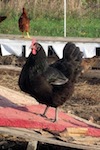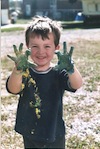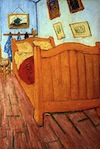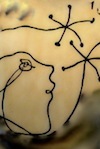 That is what I crave, I’m hungry to understand my purpose, to believe that human finiteness is okay, and to know and believe when God made us to live in dailyness He said, “It is good.” I’d like to live with a certain clarity that though the day inevitably comes with suffering, it’s still good, and I would like to gratefully receive that day with all its shuffling and waiting as a gift.
That is what I crave, I’m hungry to understand my purpose, to believe that human finiteness is okay, and to know and believe when God made us to live in dailyness He said, “It is good.” I’d like to live with a certain clarity that though the day inevitably comes with suffering, it’s still good, and I would like to gratefully receive that day with all its shuffling and waiting as a gift. That is what I crave, I’m hungry to understand my purpose, to believe that human finiteness is okay, and to know and believe when God made us to live in dailyness He said, “It is good.” I’d like to live with a certain clarity that though the day inevitably comes with suffering, it’s still good, and I would like to gratefully receive that day with all its shuffling and waiting as a gift.
That is what I crave, I’m hungry to understand my purpose, to believe that human finiteness is okay, and to know and believe when God made us to live in dailyness He said, “It is good.” I’d like to live with a certain clarity that though the day inevitably comes with suffering, it’s still good, and I would like to gratefully receive that day with all its shuffling and waiting as a gift.
































